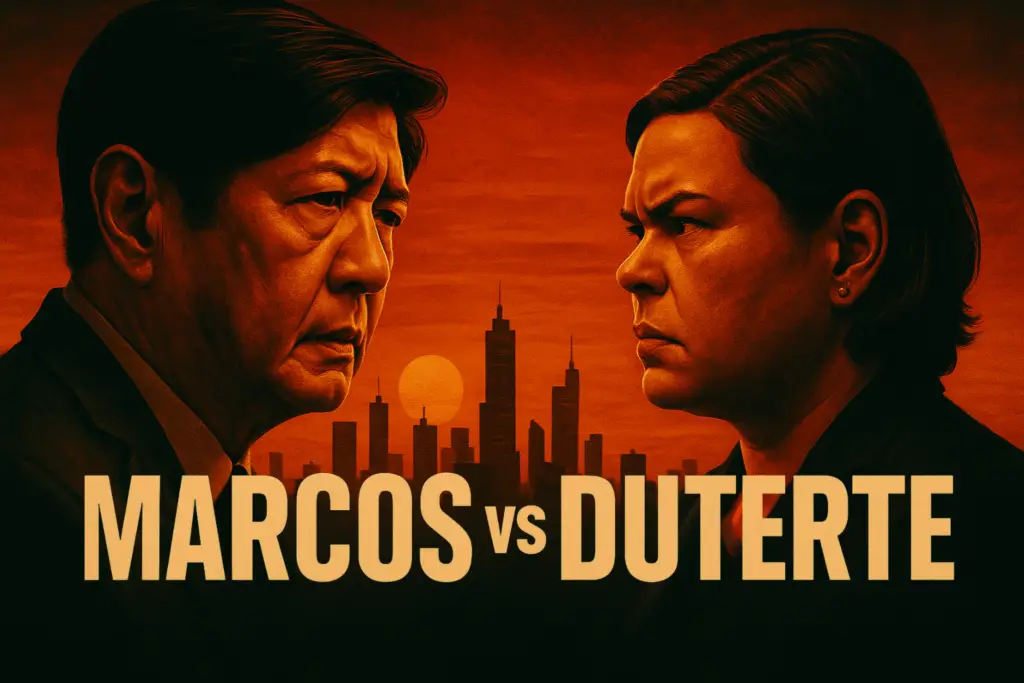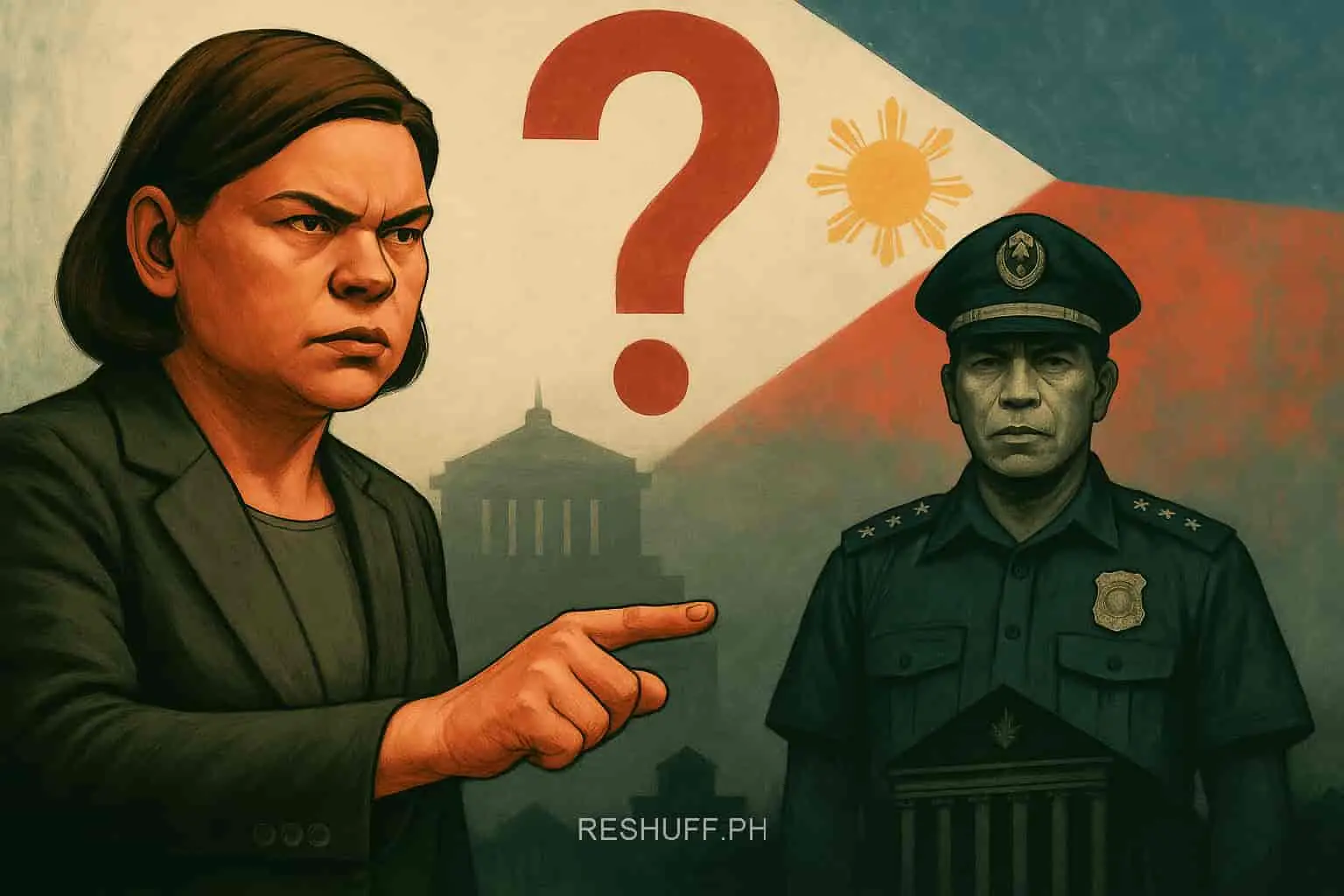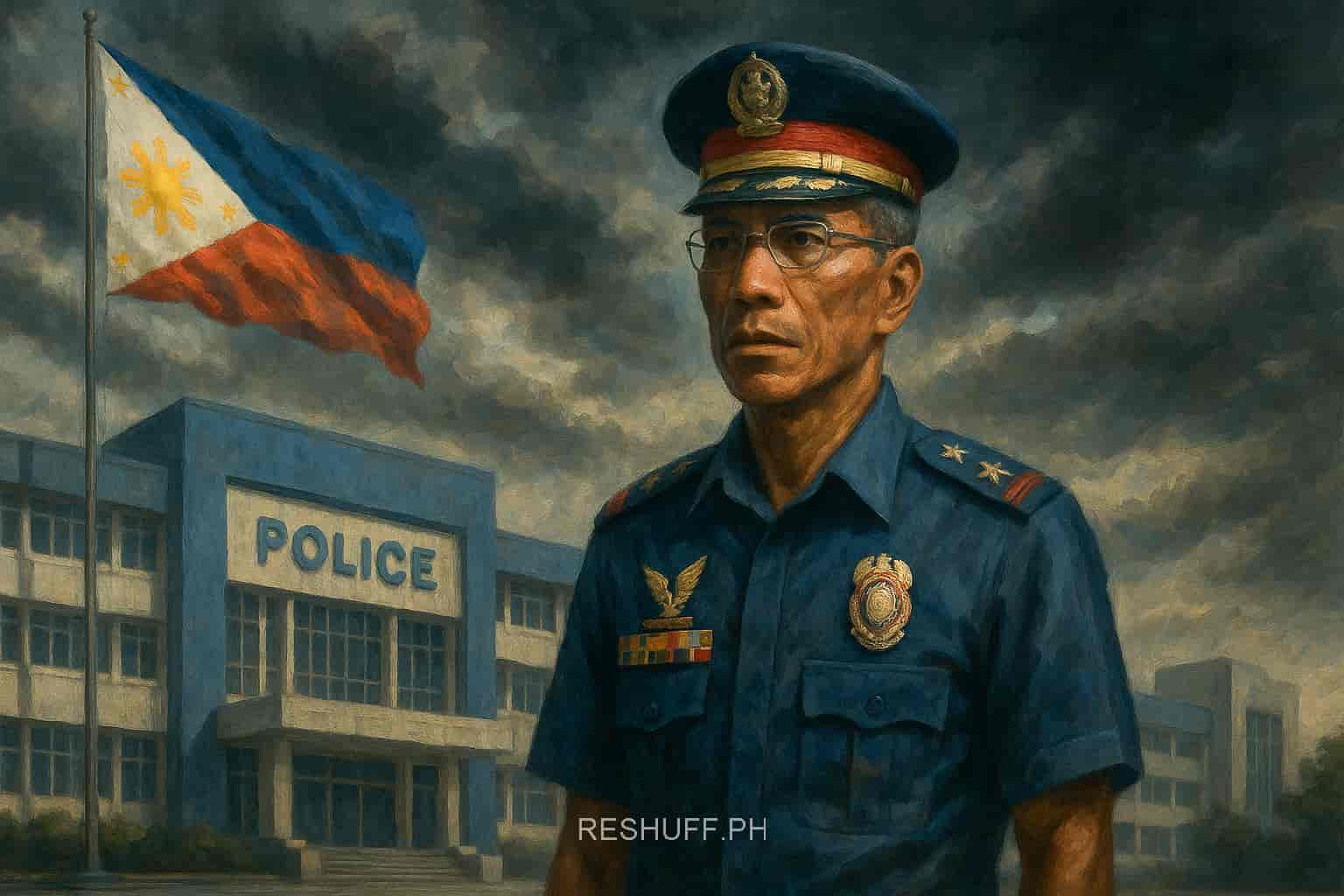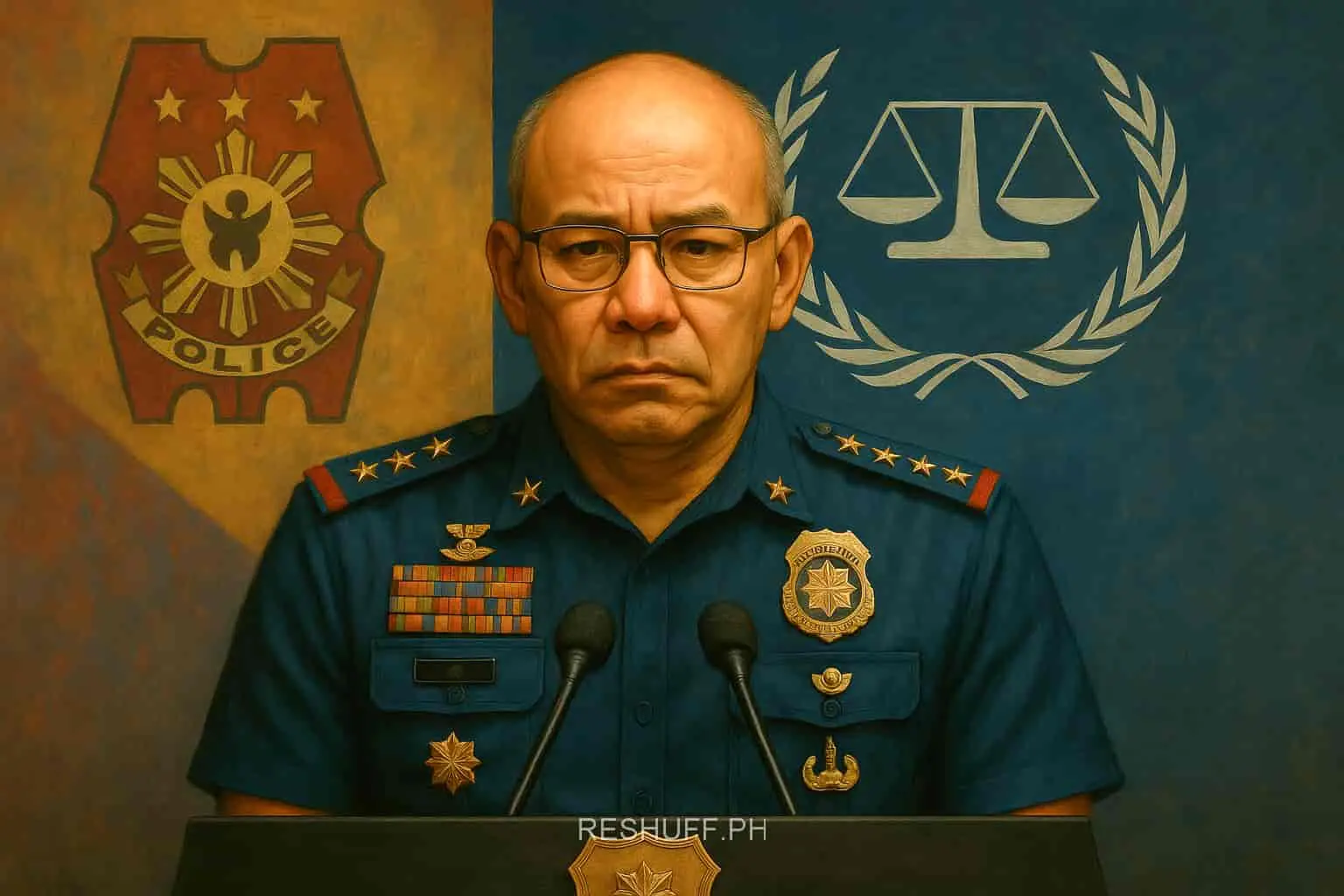From "UniTeam" to "Toxic": How the Power Pact Crumbled
The cracks in the Marcos-Duterte alliance appeared almost immediately after their landslide victory in 2022. Sara Duterte, daughter of the controversial former President Rodrigo Duterte, was appointed Education Secretary, despite reportedly wanting the more powerful Defense portfolio. Tensions simmered.
By May 2023, Duterte resigned from her father’s former ruling party, Lakas-CMD, citing “political toxicity” and “execrable political powerplay”. President Marcos suggested she was simply overworked. But the relationship continued to sour. In June 2024, she quit her cabinet post as Education Secretary altogether. Months later, she confessed the relationship with Marcos had become so “toxic” that she sometimes imagined “cutting his head” off. She felt “used” by the alliance that brought them both to power.
War of Words: Accusations Fly as Feud Deepens
The feud quickly descended into a barrage of personal attacks. Former President Rodrigo Duterte lashed out, calling Marcos a “weak leader” and a “drug addict”. Marcos denied the claims, retorting that the elder Duterte himself used the powerful painkiller fentanyl. The former president even urged the military to correct the country’s “fractured governance,” though he stopped short of calling for a coup. In one shocking statement, he suggested killing senators in a bomb blast to make way for his own candidates.
President Marcos, initially restrained, eventually declared he would fight back against the threats targeting him and his family. “Such criminal plans should not be overlooked,” he stated in a national address. He vowed to uphold the rule of law, pointedly saying in Tagalog, “The truth should not be summarily executed” – a phrase evoking the extrajudicial killings associated with Rodrigo Duterte’s own bloody drug war.
Investigations Tighten the Noose: Funds, Justice, and Politics
The war of words was backed by action. Allies of President Marcos in Congress launched investigations into Vice President Sara Duterte’s alleged misuse of confidential funds. Questions arose about millions of dollars spent secretly during her time as Vice President and Education Secretary. Auditors flagged irregularities, including P125 million spent by her office in just 11 days in 2022. One bizarre finding involved acknowledgement receipts listing fictitious names like “Mary Grace Piattos”. Sara Duterte dismissed the probes as politically motivated attacks designed to silence her.
Simultaneously, the Marcos administration made a stunning reversal on another front. After previously resisting cooperation, Marcos signaled his government would work with the International Criminal Court (ICC) investigating Rodrigo Duterte for alleged crimes against humanity during his deadly war on drugs. This shift was seen by many as a strategic move, a “trump card” to pressure the Duterte family. The change in stance ultimately paved the way for the elder Duterte’s arrest, sending shockwaves through the political landscape. These investigations, targeting both Dutertes, highlight how justice mechanisms can become tools in high-stakes political battles, used to weaken rivals ahead of crucial elections.
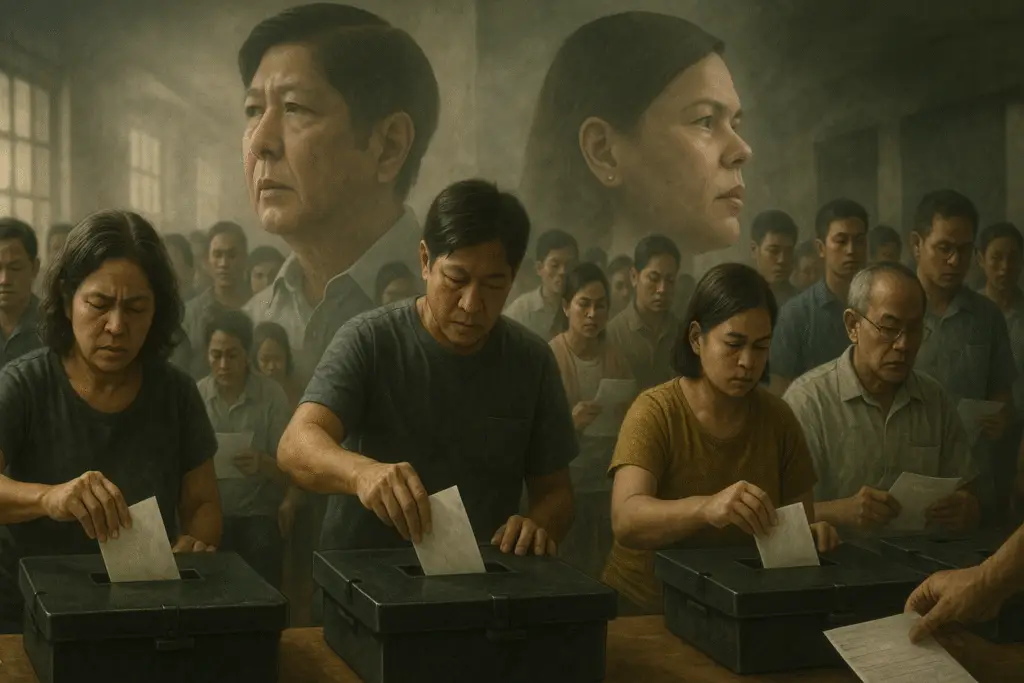
Battleground 2025: Midterms Could Decide Dynasties' Fates
All eyes are now on the May 12, 2025, midterm elections. This vote is far more than a routine political exercise; it’s being called a “proxy war” between the Marcos and Duterte camps. Filipinos will elect 12 new senators (half the chamber) and all 317 members of the House of Representatives. The results will serve as a critical “litmus test” of Marcos’s presidency and could determine the political survival of Sara Duterte.
Her fate hangs precariously in the balance. Impeached by the House over the assassination threats and alleged corruption , she faces trial in the Senate after the elections. The newly elected senators will act as her judges. If a Marcos-aligned Senate convicts her, she would be barred from holding public office, crushing her ambitions for the 2028 presidential race. An acquittal, however, would leave her free to challenge Marcos and potentially reclaim the presidency she felt was “mine already in 2022”.
For Marcos, controlling Congress is essential to push his agenda, possibly including controversial changes to the constitution , and solidify his power base. While the dynastic drama unfolds, ordinary Filipinos grapple with rising prices and joblessness – concerns that could sway votes despite the political noise.
Global Ripple Effect: Feud Shapes Philippines' Stance Between US and China
A Nation Caught in the Crossfire
The bitter domestic feud is also reshaping the Philippines’ place in the world. President Marcos has steered the country sharply away from his predecessor’s pro-China stance and firmly towards its traditional ally, the United States. He has boosted defense ties with Washington, granting the US military expanded access to bases and increasing joint exercises. This pivot includes taking a much tougher line against China’s aggressive actions in the disputed South China Sea, a move popular with many Filipinos.
The Duterte faction represents a potential return to a more China-friendly policy. Sara Duterte has remained largely silent on the South China Sea issue, sometimes calling for a “comprehensive approach” beyond the maritime dispute. Her supporters have accused the Marcos camp of being “America’s lackey”.
The 2025 midterm election results are therefore critical not just for domestic politics, but also for determining whether the Philippines continues its assertive, US-aligned foreign policy or shifts back towards accommodation with Beijing. Foreign policy has become another battleground in this internal power struggle.
The Philippines finds itself trapped in a destructive feud between its most powerful political dynasties. Shocking threats, accusations of corruption and drug use, politically charged investigations, and clashing foreign policy visions paint a picture of deep instability. The upcoming 2025 elections loom as a potential turning point, deciding not only the fate of the Marcos and Duterte families but also the country’s direction for years to come.
Yet, as the political titans battle for supremacy, urgent national problems risk being ignored. The intense focus on the dynastic power struggle distracts from the everyday concerns of millions of Filipinos struggling with economic hardship. Experts warn that such political infighting hinders development and effective governance. Ultimately, whichever family emerges victorious from this ugly conflict, many fear the real losers will be the Filipino people, caught in the crossfire of a battle for power

